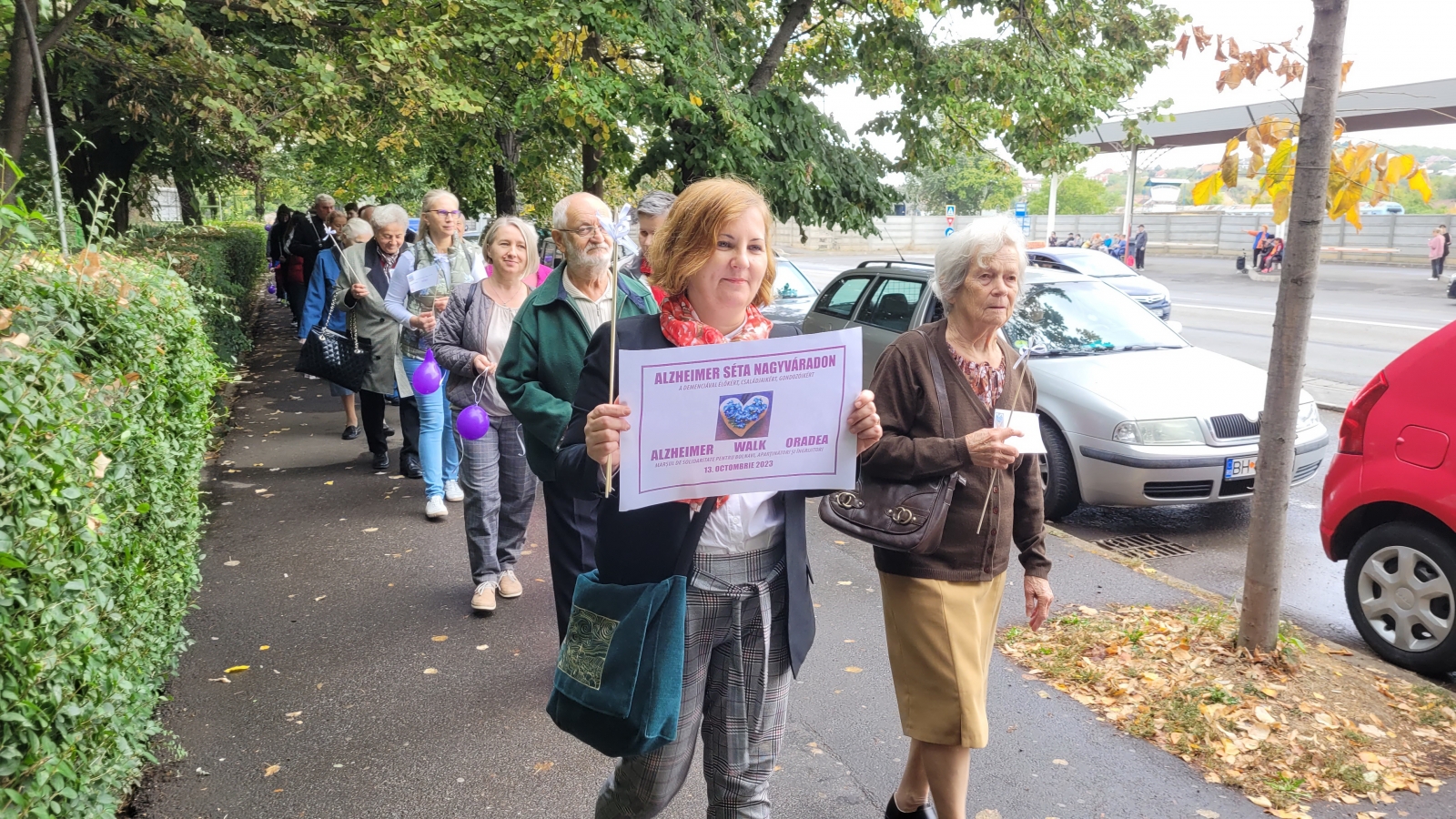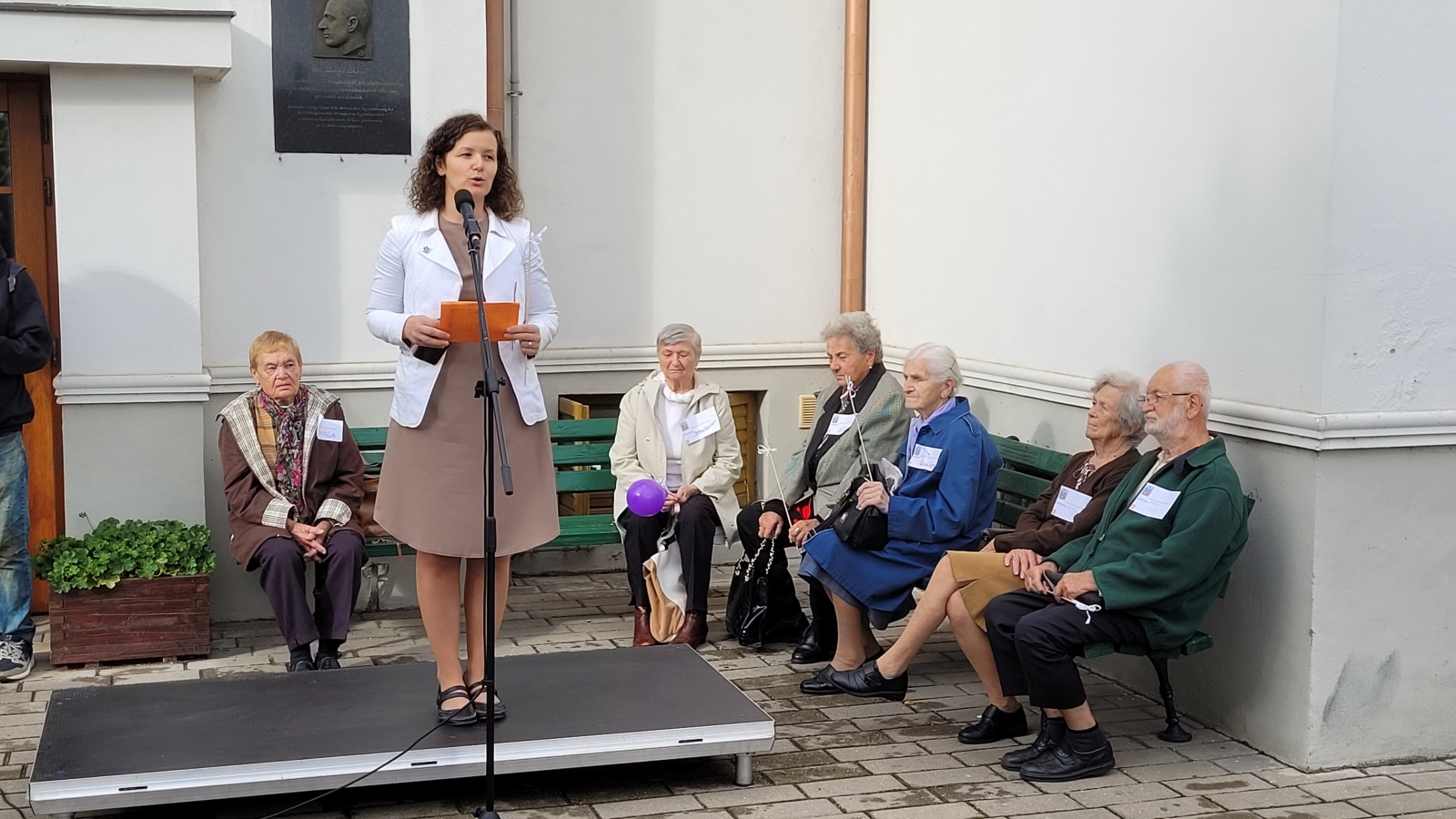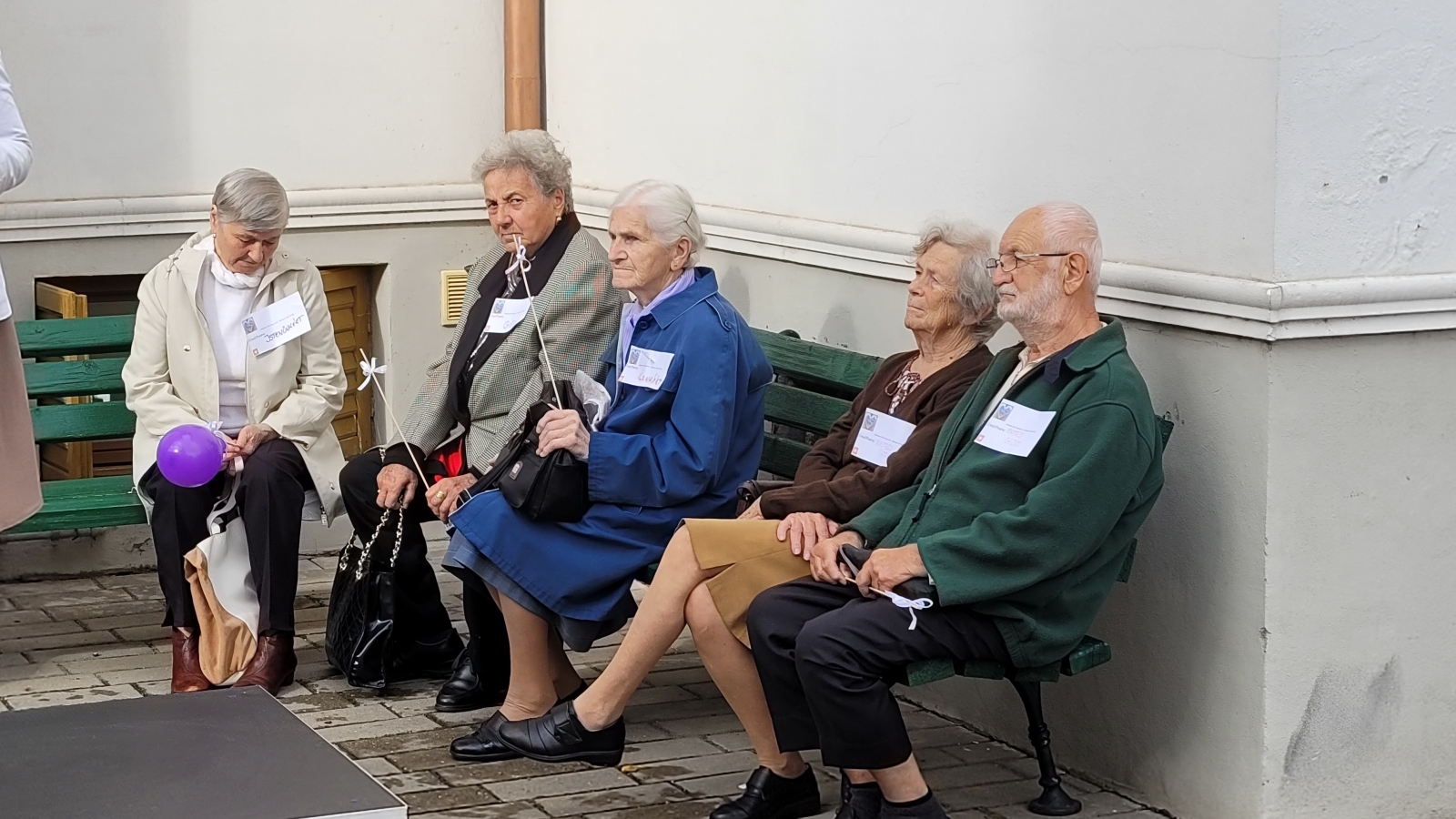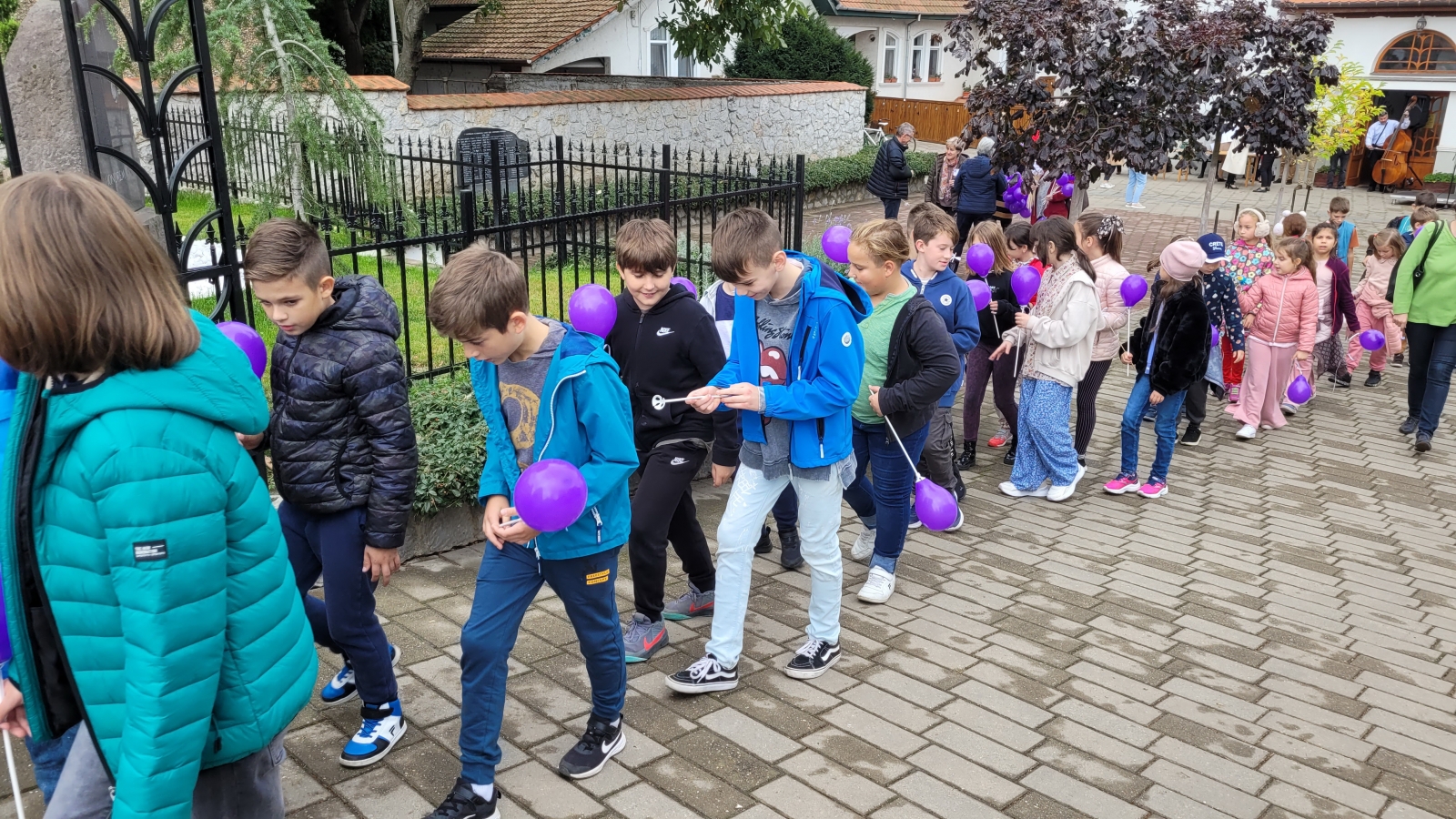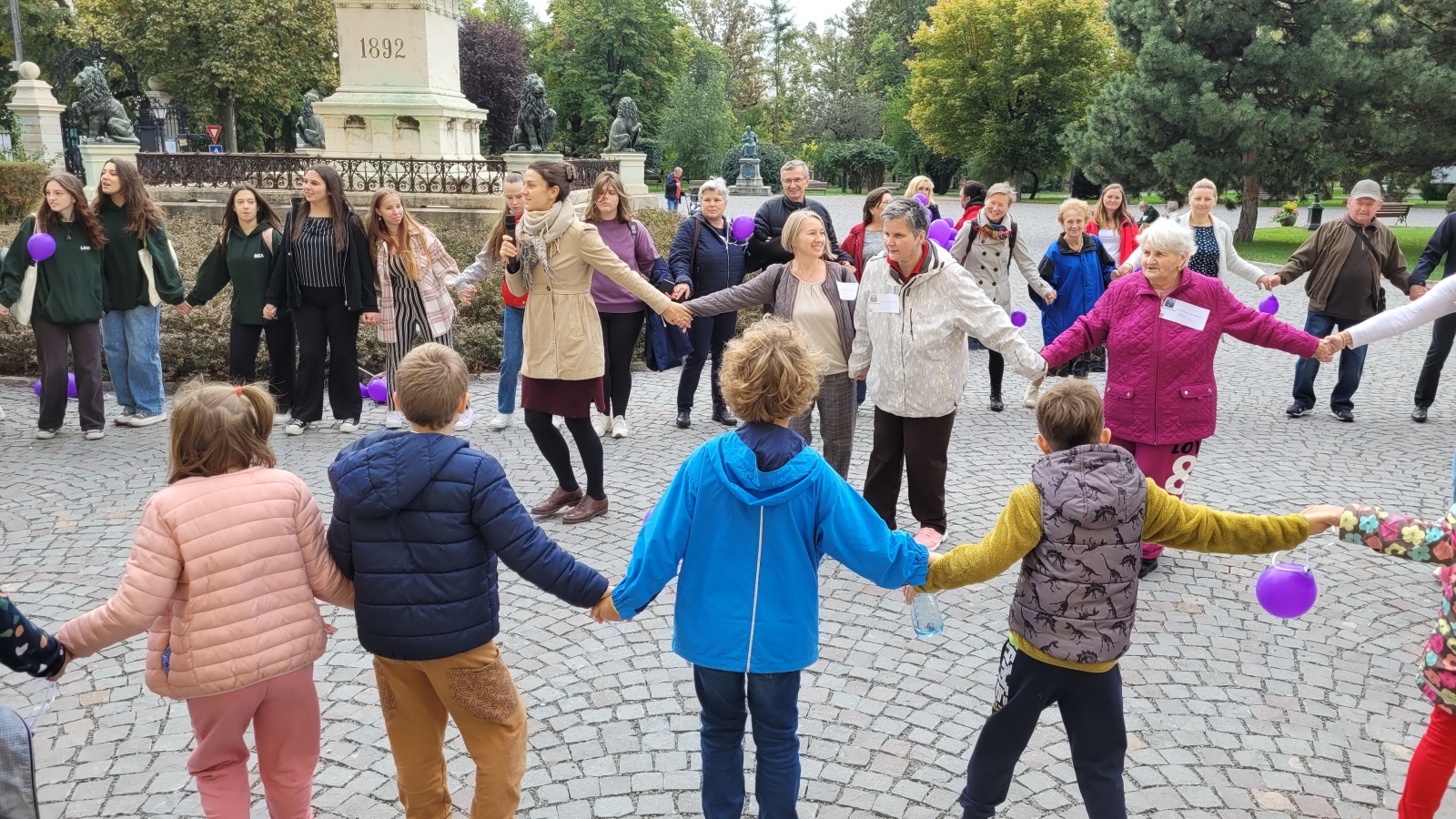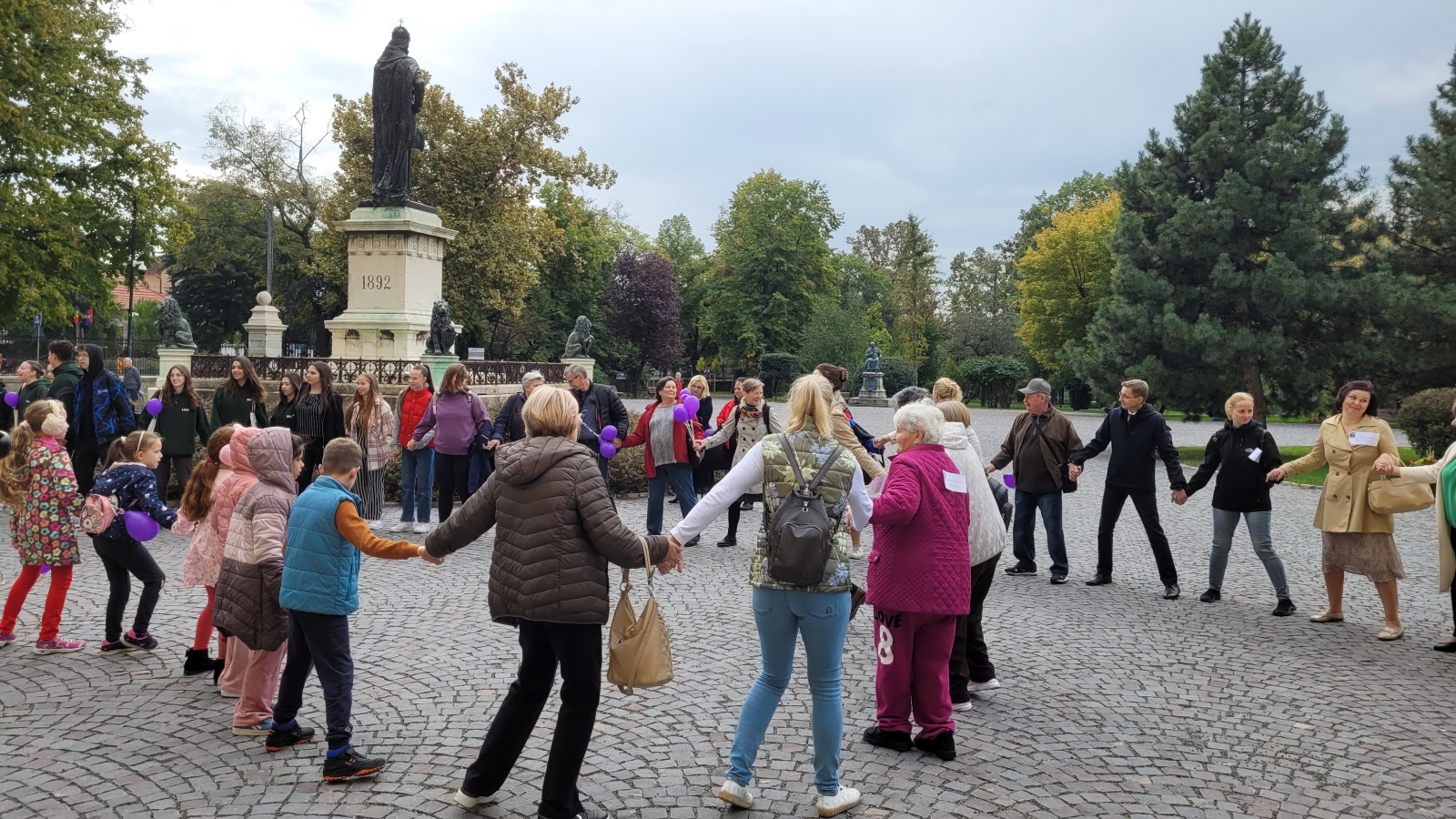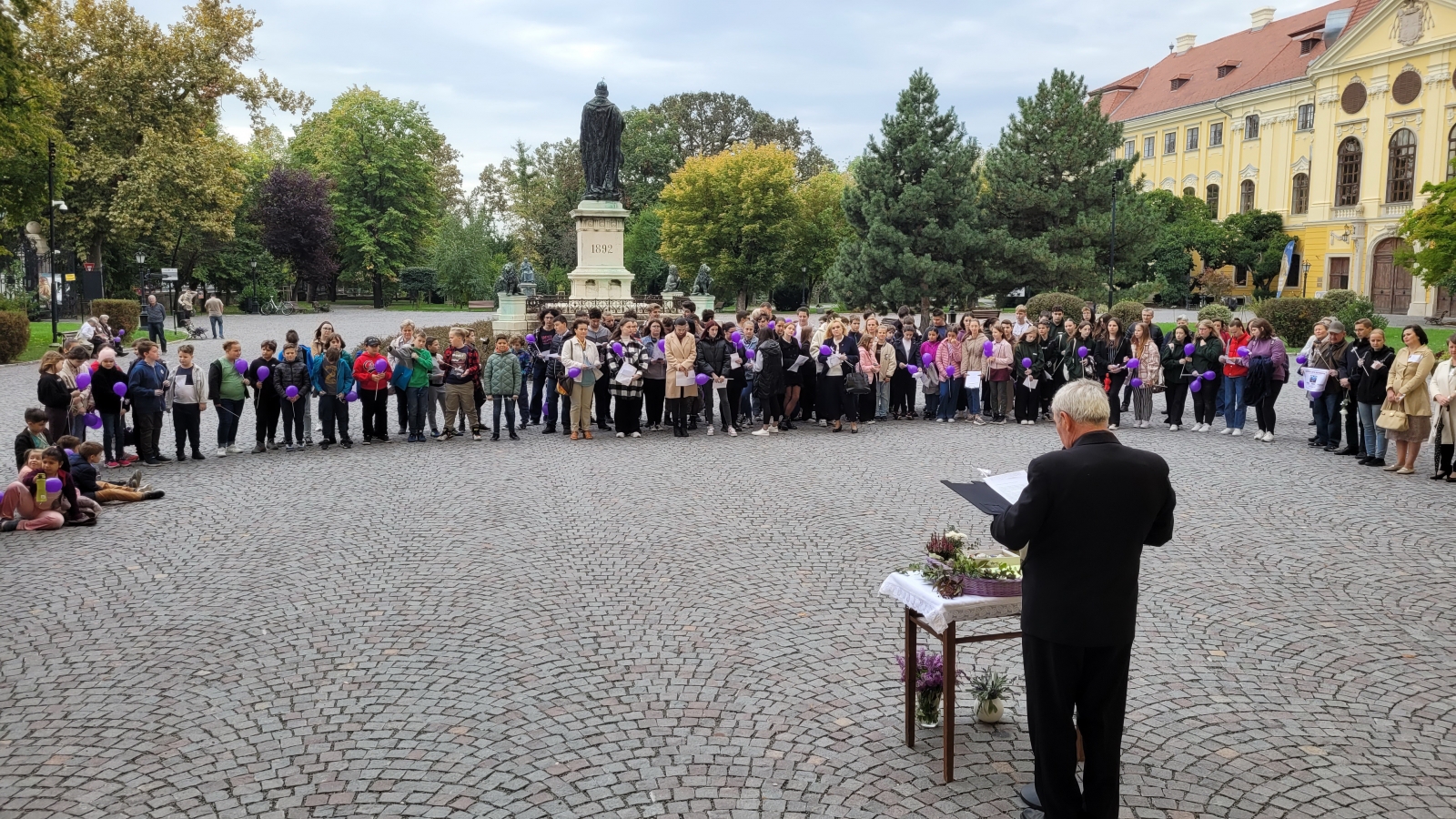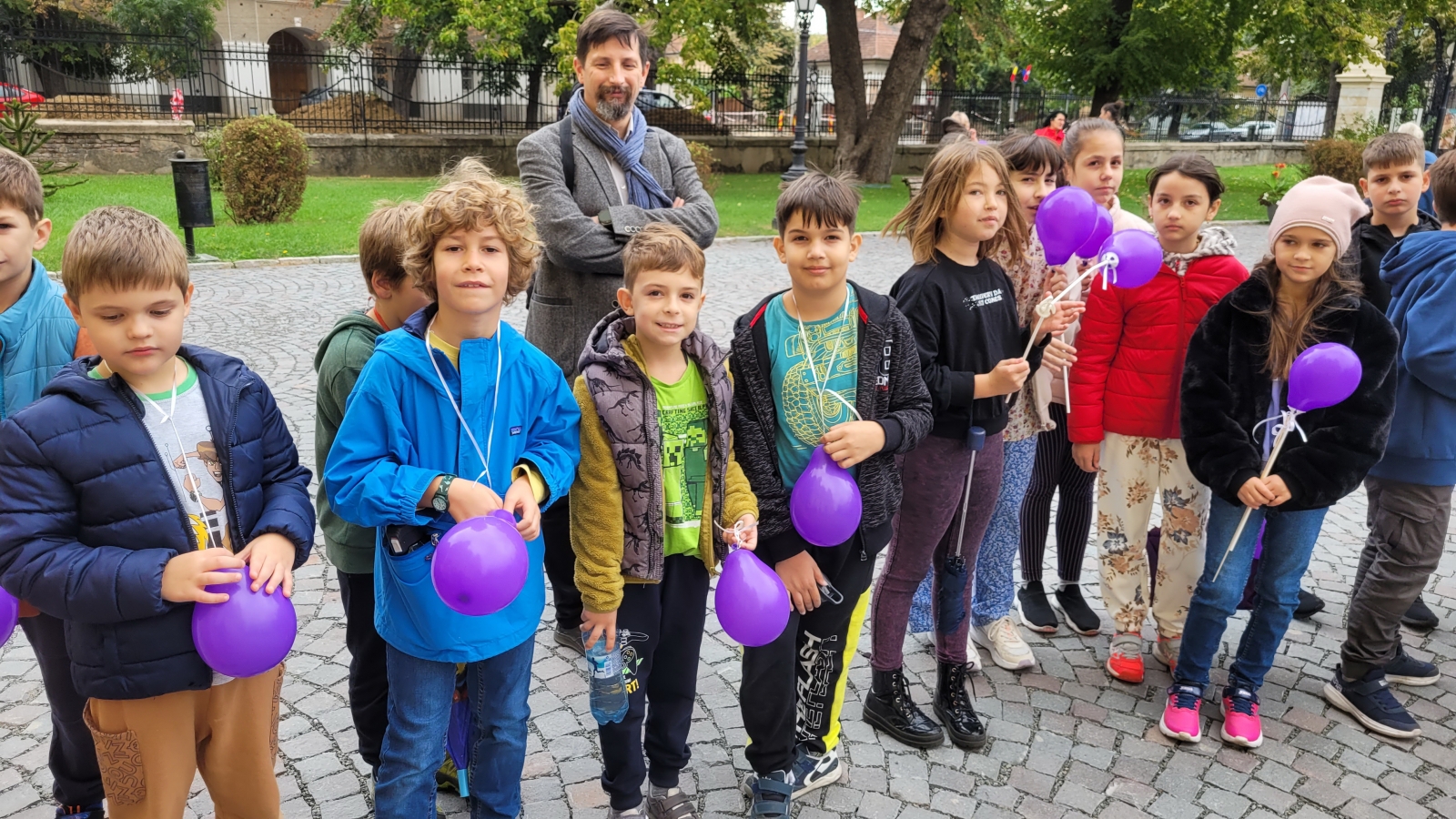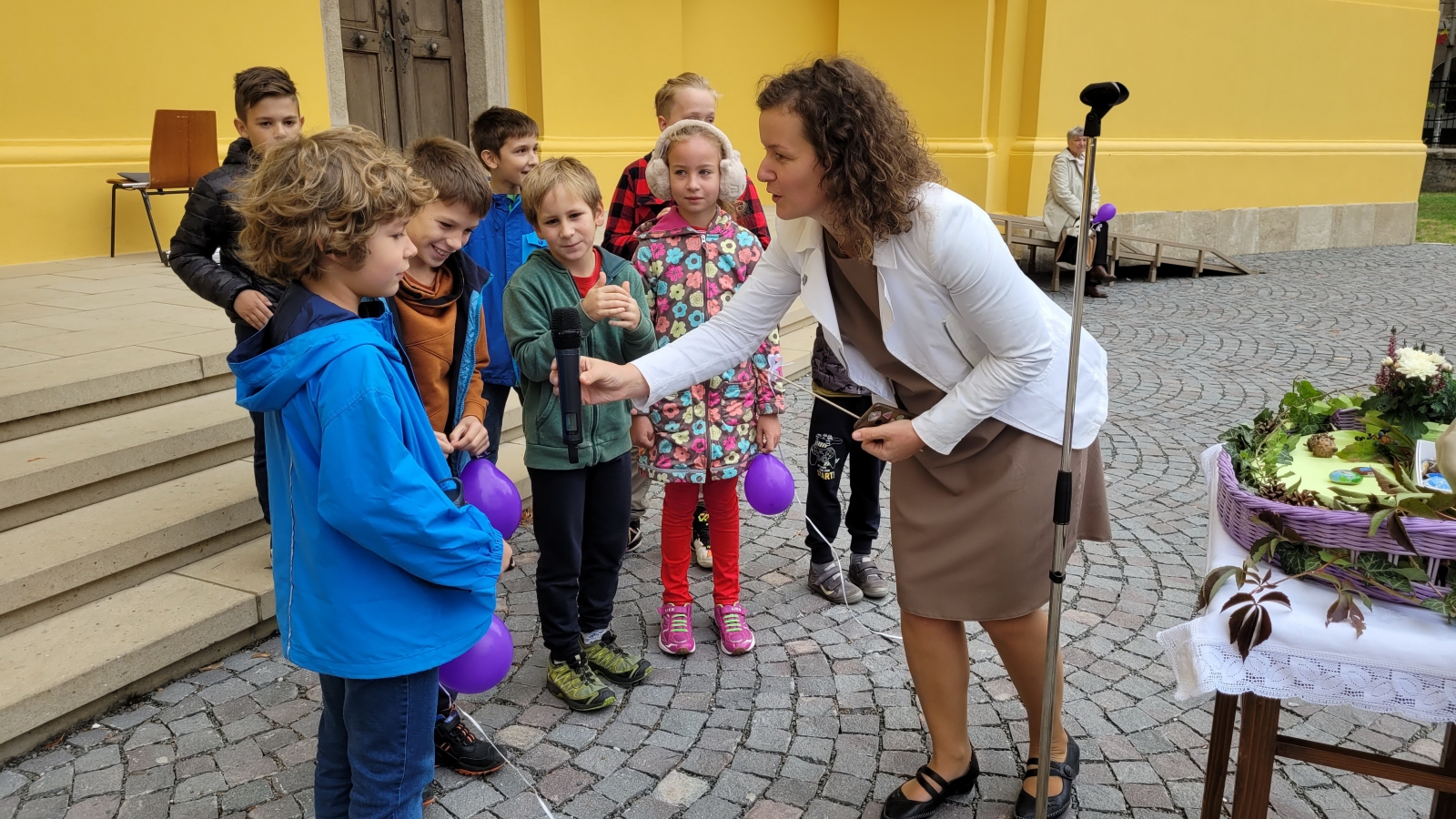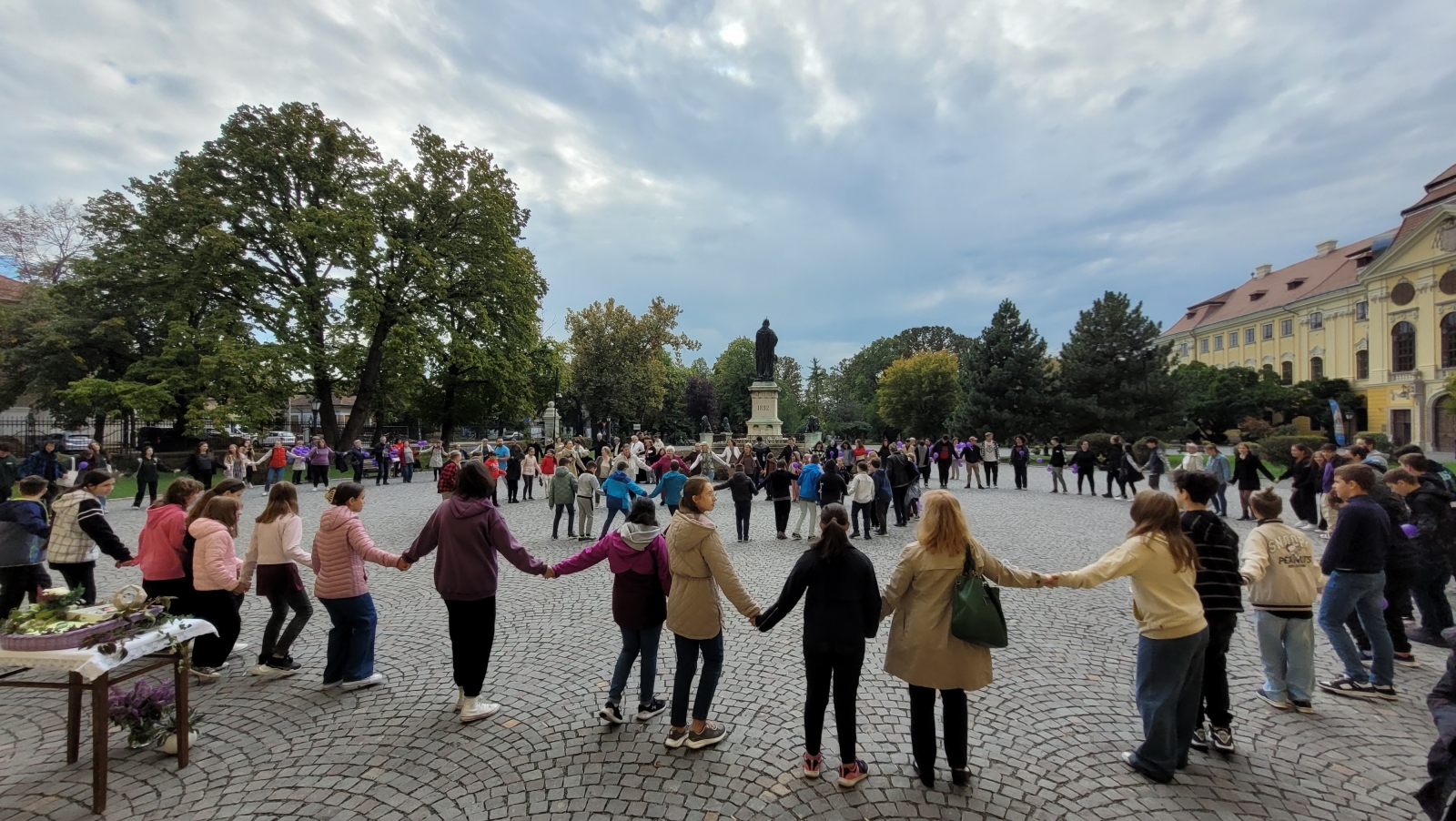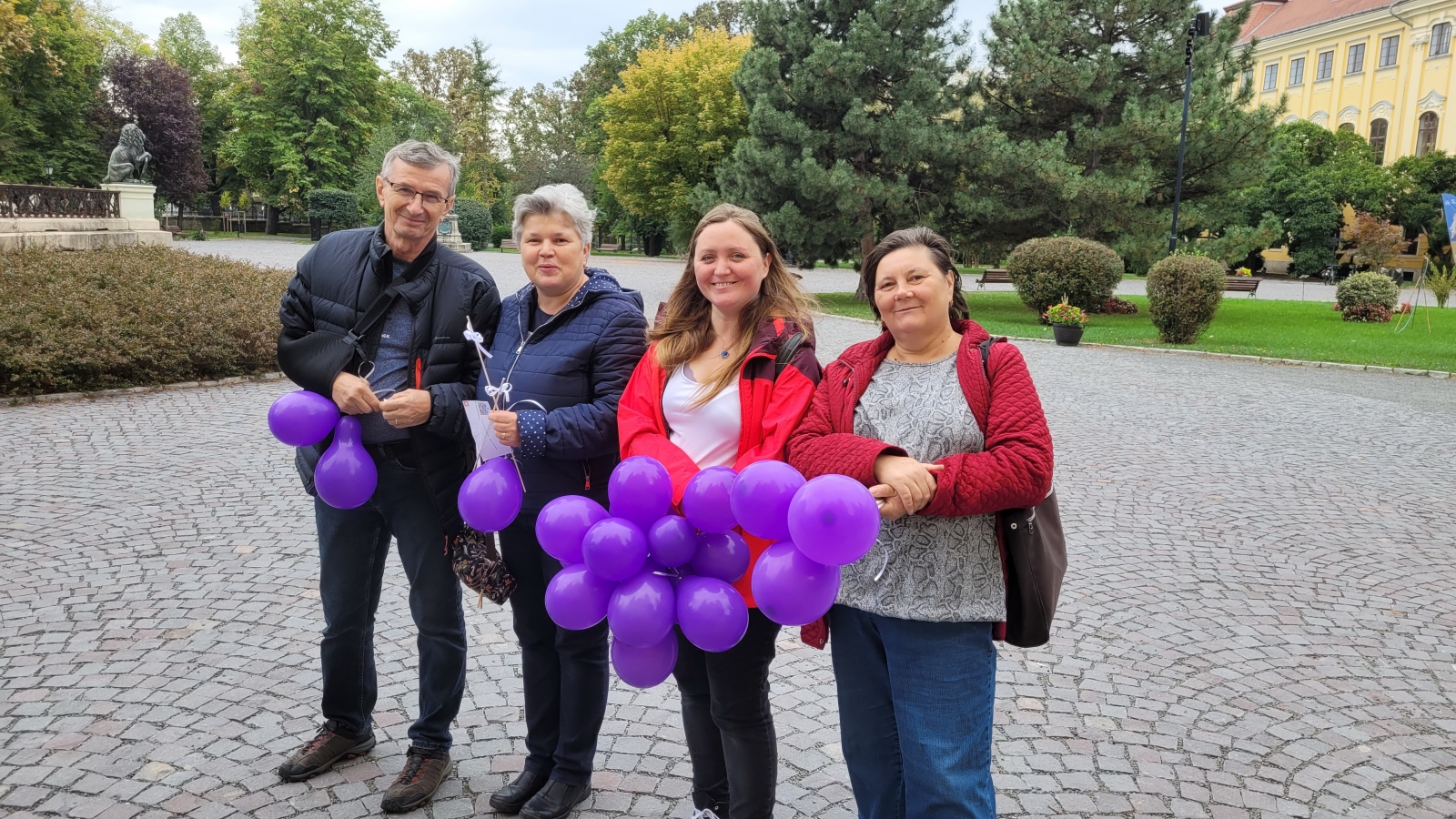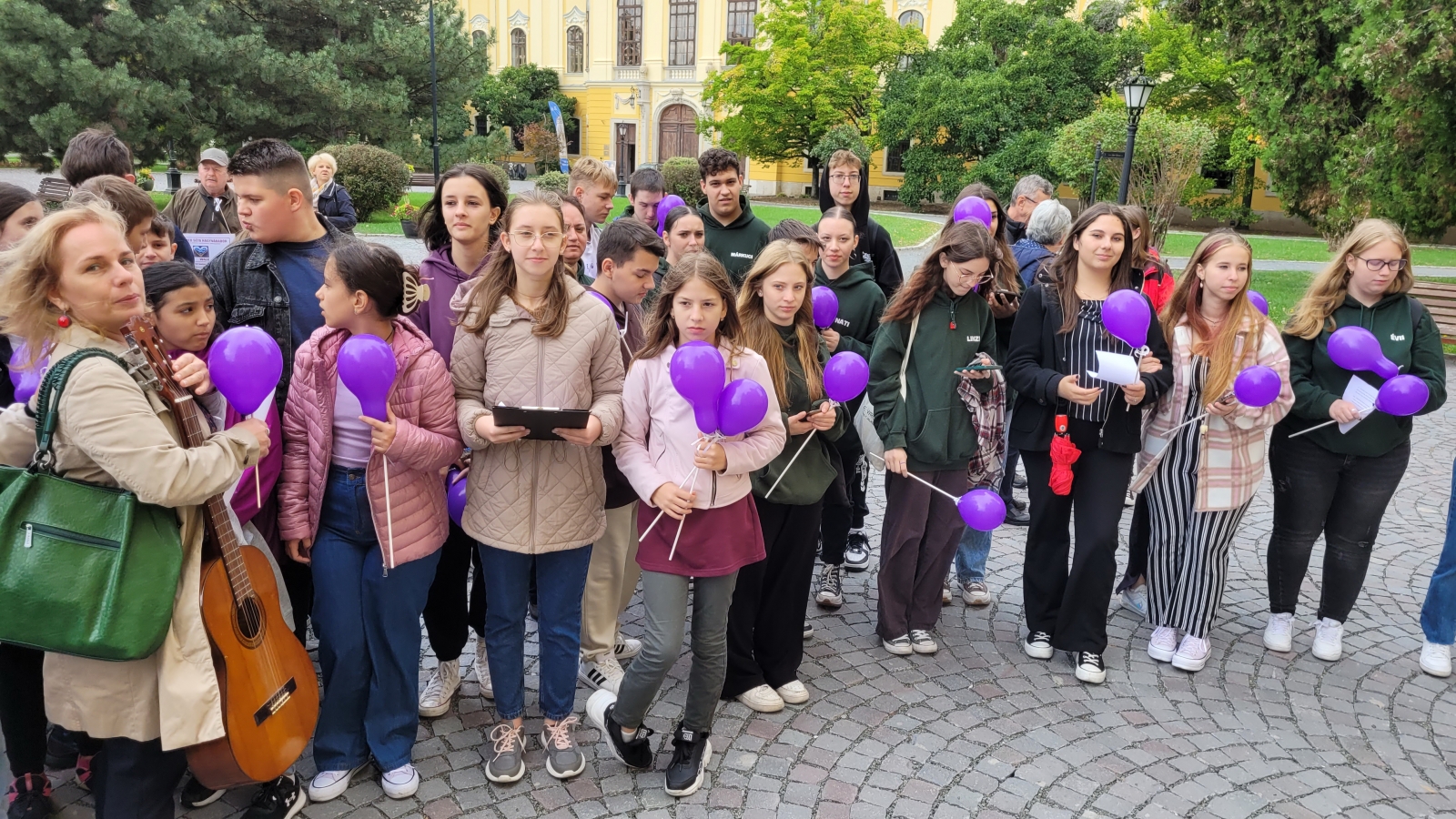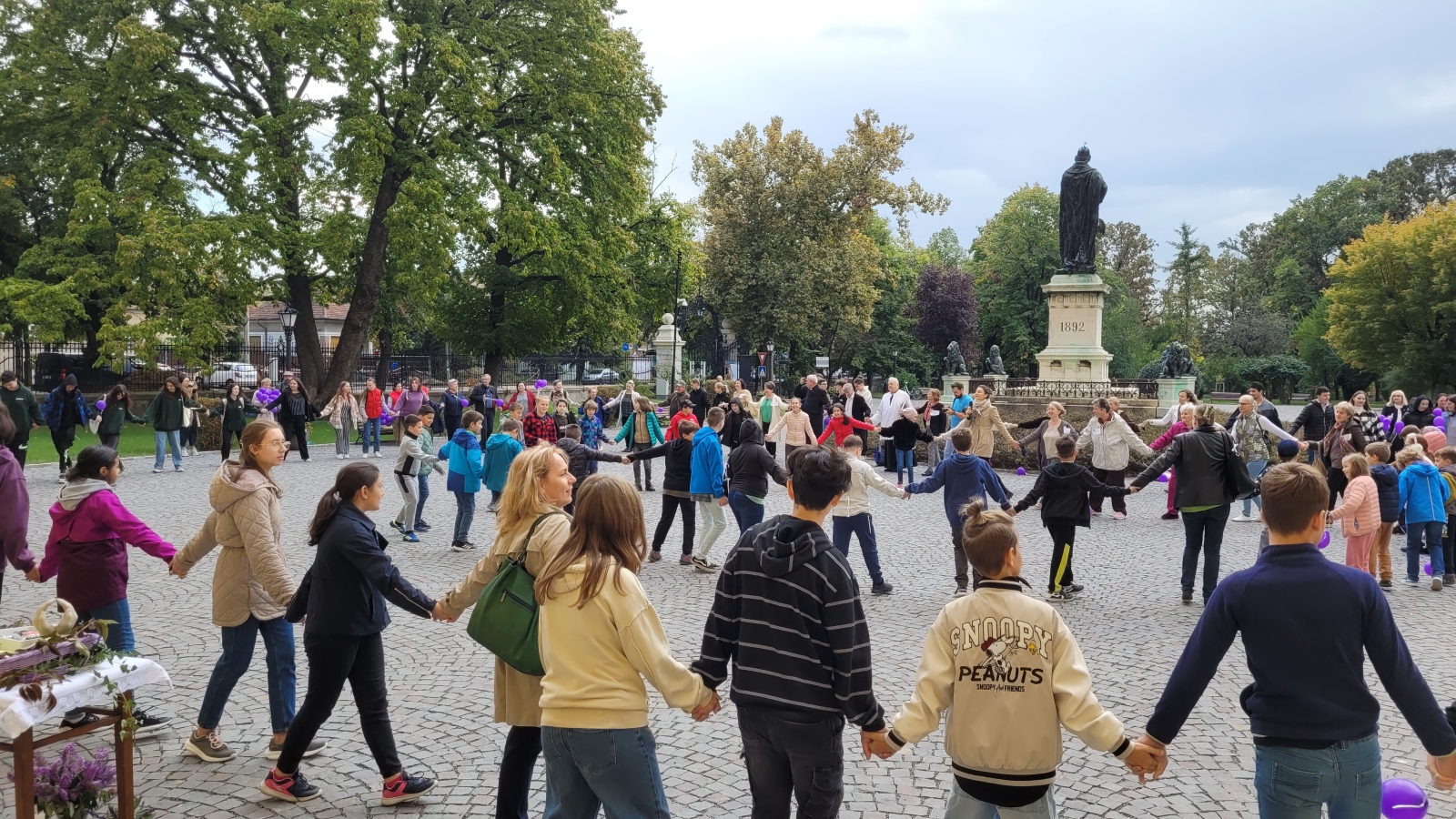The first march of this kind in Oradea started out on Friday at 10:30 AM in the courtyard of the Rét Reformed Church (opposite the Central Station), where assistant pastor Kitty Kabai greeted the participants, and then Andrea Dombi, the main organizer, talked about its origin and the purpose of the Alzheimer's walk. She pointed out that more than 10 million new cases of Alzheimer's are diagnosed worldwide every year, and this is just one branch of many other diseases associated with mental decline in old age. So, we can talk about a large scale phenomena, which requires the joint attention and action of the population.
"Alzheimer's disease is, unfortunately, incurable at present. The only solution is prevention, or if it is caught at an early stage and treated appropriately. Therefore, initiatives aimed at improving patients' living conditions, such as creating a favorable environment for people with dementia, have come to the fore. The essence of a dementia-friendly environment is for affected people to be understood, their relatives and caregivers to be respected and supported. In a city, the friendly environment means that community members know and understand what dementia is, and people with dementia feel part of and participate in the community, have control over their own lives and their rights are recognized. With this in mind and for this purpose, the Alzheimer's Café was also launched in Oradea, which encourages relatives of people living with dementia to self-help, inform and support those affected. This brings us to the so-called Alzhemer Walk, which is also integrated in this context: it aims to create a dementia-friendly community, it was born as an awareness program, and is spread all over the world" – said Andrea Dombi, main organizer.
Subsequently, Ghitea Szabó József Levente conveyed the blessing to the district bishop of the Reformed Church near Piatra Craiului. In his speech he stressed the importance of cooperation between the various ecclesial communities. "If someone feels tired in this world and can't take it anymore, that's not a sin, but an opportunity to open up to each other, reach out and give and receive help," he said, referring to the role of diaconal work in helping elders.
The concrete community march followed, attended jointly by residents of nursing homes and school students. The mixed group of over one hundred people marched along the route Stefan cel Mare – Berzei – Sirul Canonicilor with colorful balloons, specially made symbolic objects and painted stones to the Roman Catholic cathedral. There the participants were welcomed by pastor Jozsef Rajna, General Director of Caritas Catolica Association. As he pointed out in his speech: "When we see a person with dementia, we tend to forget about the human side in the shadow of the disease. We only notice the symptoms of the disease, the sad signs of physical and mental decline without remembering the human inside. It is our duty as Christians, relatives and professionals to treat with love and dignity those entrusted to us, to provide real support and appropriate assistance. The mission of Caritas Catolica Oradea Association is to serve the community with humility, continuous development and respect."
As the special guest of the event, Adina Ciucioiu, representative of city authorities, gave an emotional speech, sharing her personal experience of caring for a family member with dementia. As she said, this can only be done with dignity if someone is full of love for the patient, but at the same time it is important that caregivers are well informed and receive professional help if necessary.
The atmosphere of the Alzheimer's March was enriched by the performances of several groups of students: a program of poetry and music was presented by students of grades 6.B, 10.A, 10.B and 11.B of the Roman Catholic Theological High School Szent László led by teachers Tünde Kele, Mónika Varabecz, Éva Zander, Ildikó Konrád and Ramona Benedek, as well as by students of grades IV and II from Lorántffy Zsuzsanna Reformed High School accompanied by teachers Ildikó Kovács, Timea Kallós and Zoltán Szakacs.
The elderly and participating students also danced a circle dance, for which volunteers of the Soroglya band provided the musical base, and then pastor István Pálos led a common prayer. At the end of the event, the participants arranged the symbolic "Garden of Hope" in the courtyard of the bishop's palace, expressing their hope to find a cure for Alzheimer's disease, but at the same time, as a symbol of leaving the burdens of everyday life, everyone could put down the painted stones and colorful balloons they brought with them.
